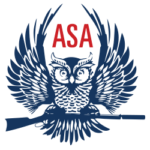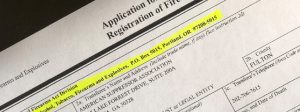
On Tuesday, June 6th, the Rhode Island Senate Judiciary Committee is scheduled to hear Senate Bill 399. Introduced in March by Senators Archambault, Ruggerio, McCaffrey, Lombardo, Lombardi, SB 399 seeks to legalize suppressor ownership and hunting in Rhode Island. Suppressors are currently legal to own in 42 states, 40 of which allow their use while hunting.
Although legal in 42 states, suppressors have been federally regulated since the passage of the National Firearms Act of 1934. Currently, prospective buyers must send in a Form 4 application to the ATF, pay a $200 transfer tax per suppressor, undergo the same process that is required to purchase a machine gun, and wait eight to twelve months for the ATF to process and approve the paperwork. In stark contrast, many countries in Europe place little to no regulations on their purchase, possession, or use.
With your help, we can bring Rhode Island one step closer to becoming the 43rd state to legalize suppressors. Using the contact information below, please contact members of the Senate Judiciary Committee and politely urge them to vote in support of SB 399.
Sen. Erin Lynch Prata – Chairperson – sen-lynch@rilegislature.gov
Sen. Stephen R. Archambault – Vice-Chairperson – sen-archambault@rilegislature.gov
Sen. Harold M. Metts – Secretary – sen-metts@rilegislature.gov
Sen. Cynthia A. Coyne – Member – sen-coyne@rilegislature.gov
Sen. Mark W. Gee – Member – sen-gee@rilegislature.gov
Sen. Paul V. Jabour – Member – sen-jabour@rilegislature.gov
Sen. Frank S. Lombardi – Member – sen-lombardi@rilegislature.gov
Sen. Donna M. Nesselbush – Member – sen-nesselbush@rilegislature.gov
Sen. Leonidas P. Raptakis – Member – sen-raptakis@rilegislature.gov
ASA – Rhode Island SB 399 Letter of Support – Judiciary Committee – June 6, 2017
There are many benefits to using a suppressor, including:
- HEARING PROTECTION: Noise induced hearing loss and tinnitus are two of the most common afflictions for recreational shooters and hunters. Everyone knows that gunfire is loud, but very few people understand the repercussions that shooting can have on their hearing until it’s too late. Suppressors reduce the noise of a gunshot by an average of 20 – 35 dB, which is roughly the same as earplugs or earmuffs. By decreasing the overall sound signature, suppressors help to preserve the hearing of recreational shooters, hunters, and hunting dogs around the world.
- SAFER HUNTING: Most hunters do not wear hearing protection in the field because they want to hear their surroundings. The trouble is, exposure to even a single unsuppressed gunshot can, and often does, lead to permanent hearing damage. Suppressors allow hunters to maintain full situational awareness, while still protecting their hearing. The result is a safer hunting experience for the hunter, and for those nearby.
- NOISE COMPLAINTS: As urban developments advance into rural areas, shooting ranges and hunting preserves across the country are being closed due to noise complaints. Although it can still be heard, suppressed gunfire helps mitigate noise complaints from those who live near shooting ranges and hunting land.
- ACCURACY: Suppressors reduce recoil, and help decrease muzzle flinch. These benefits lead to improved accuracy, better shot placement, and more humane hunts.
Although legal in 42 states, suppressors have been federally regulated since the passage of the National Firearms Act of 1934. Currently, prospective buyers must send in a Form 4 application to the ATF, pay a $200 transfer tax per suppressor, undergo the same process that is required to purchase a machine gun, and wait eight to twelve months for the ATF to process and approve the paperwork. In stark contrast, many countries in Europe place little to no regulations on their purchase, possession, or use.
According to Dr. William W. Clark, the current Director of the Washington University School of Medicine’s Program in Audiology and Communication Sciences, “the most serious threat to hearing comes from recreational hunting or target shooting”. This is in large part due to the fact that many people choose not to use traditional hearing protection devices like earplugs and earmuffs. To explain why, multiple studies have found that between 70 to 80% of hunters never wear earplugs or earmuffs, and nearly half of all target shooters don’t consistently wear traditional hearing protection. It should come as no surprise that for every five years of hunting, you become seven percent more likely to experience high frequency hearing loss.
In a 2011 study, the Centers for Disease Control and Prevention (CDC) stated, “the only potentially effective noise control method to reduce students’ or instructors’ noise exposure from gunfire is through the use of noise suppressors that can be attached to the end of the gun barrel. However, some states do not permit civilians to use suppressors on firearms.” In a similar study from 2014 on noise exposure at shooting ranges, NIOSH recommended, “if feasible and legally permissible, attach noise suppressors to firearms to reduce peak sound pressure levels.”
ABOUT THE AMERICAN SUPPRESSOR ASSOCIATION
The American Suppressor Association (ASA) is the unified voice of the suppressor industry. Our mission is to unite and advocate for the common interests of suppressor manufacturers, distributors, dealers, and consumers. To accomplish our mission, our principal initiatives focus on state lobbying, federal lobbying, public education, and industry outreach.











